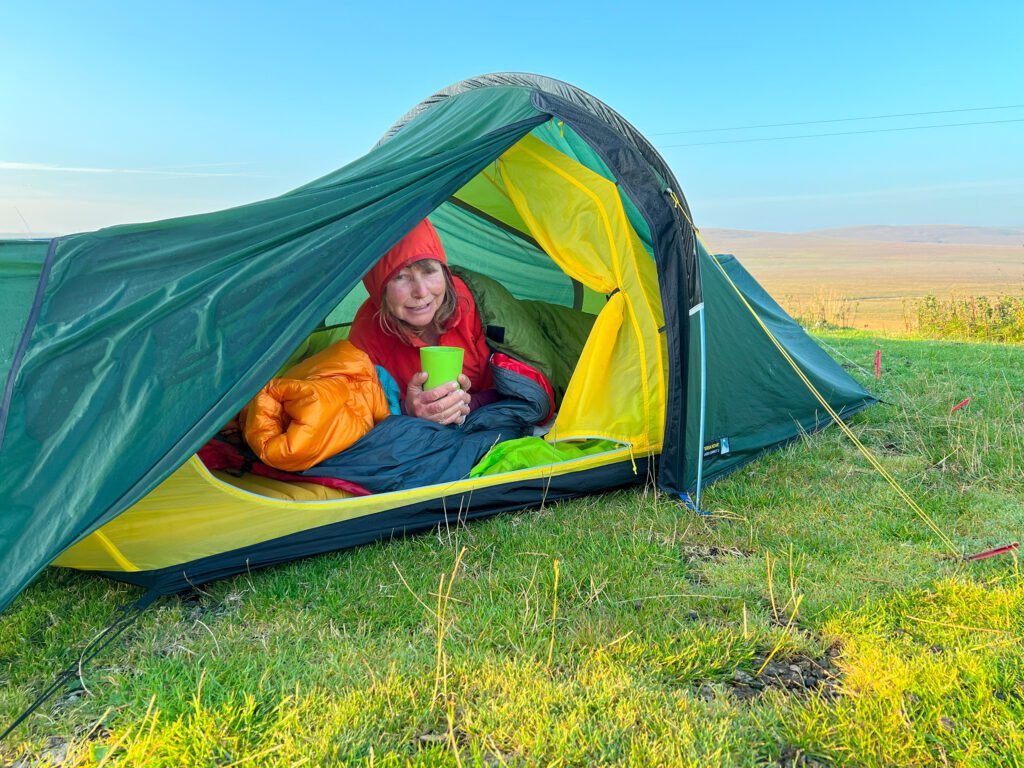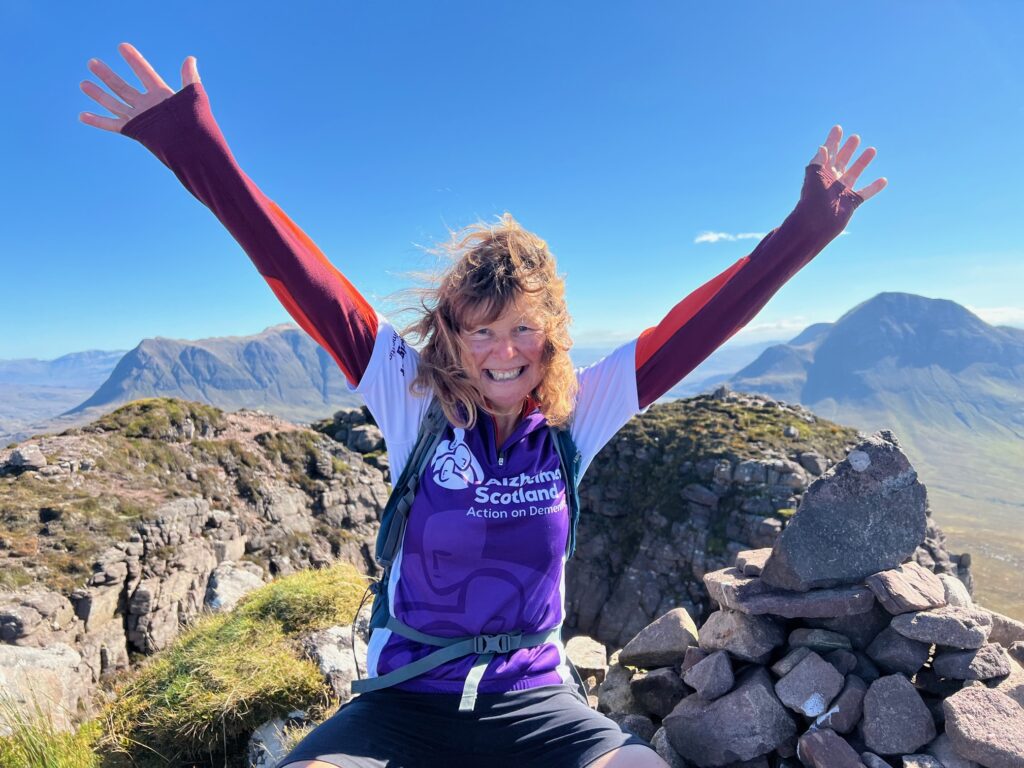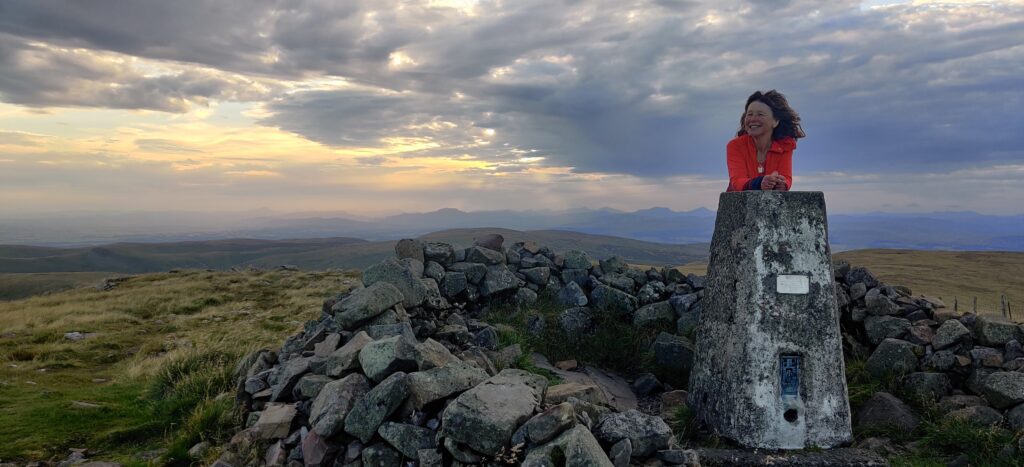A climber from the Highlands has become the first woman to climb all the Grahams in Scotland in a single journey.
Lorraine McCall took four months to climb the 231 Grahams – classified as hills of between 2000 – 2500ft – having already climbed all 282 Munros, Scotland’s highest mountains.
In total during her continuous round, which started on 16 April, the 59-year-old walked 1,500km and ascended more than 120,000 metres, or the equivalent of almost 14 times the height of Mount Everest.
In between, she cycled 4,000km and ascended 60,000m on two wheels, as well as kayaking and taking ferries where possible.
Lorraine, from Beauly, travelled as far south as Galloway, to the distant north of Sutherland, east to the region of Angus and west to reach many rugged mountains on the mainland and seven islands.
The most summits bagged in one day was six near Luss, close to Loch Lomond, during a 14-hour walk.
Lorraine has also spent many nights sleeping in a tent, bothies or hostels and she has carried a heavy rucksack with all her kit, food and water.
‘It is the hardest thing I have ever done by far. It has been much harder than I could have ever imagined,’ said Lorraine, who has had breast cancer and two bowel cancers.
‘But I am so proud of myself. I have been close to giving up quite a few times but I kept going and I am now very happy that I did.

Lorriane camping in the Highlands.
Lorraine is no stranger to epic mountain circuits. In 2005, aged 40, she became the first woman to do a non-stop, self-powered round of the Munros on foot and by kayak.
Almost a decade later, she also set a record as the first female to link another huge list of mountains known as the Corbetts (mountains between 2500ft and 3000ft) in a similar way.
‘The Grahams round has been much, much harder than either the Munros or Corbetts rounds. I can’t even quantify how much tougher it has been,’ she said.
‘My body is older and a bit more worn out than it was on previous rounds and I have also had to deal with three different cancers – two bowel cancers and breast cancer – over the past 12 years.
‘This has made me slower, more breathless and I have some toileting issues.
‘In addition, the Grahams, while smaller in stature than the Munros and Corbetts, are spread out much further geographically.
‘They have very few paths because they are much less walked than other mountains and often thick with vegetation.’
She said the Grahams on the Cowal Peninsula in Argyll and in Galloway were some of the hardest.

Lorraine on the final summit.
‘At times in these areas it was hard to make progress, with thick pine forest to get through, then bracken I couldn’t even see over and wading through deep heather underfoot,’ she said.
‘There has been a lot of steep and rugged ground too on the west coast. The hardest stage of all was without doubt the seven Grahams on the Isle of Mull.
‘The combination of difficult terrain plus terrible weather really came to a head there. It was so stormy and wet on the tops I could barely see.
‘On one Graham I struggled to get back down because the wind was really strong and then I had difficulty even reaching the next hill due to a swollen river. I ended that day totally trashed.
‘There has also been a lot of very boggy ground to deal with and then there has been the swarms of midges, which are very unpleasant.’
Lorraine’s adventure raised money for the charity Alzheimer’s Scotland.
Kirsty Stewart, Alzheimer Scotland’s Executive Lead of Fundraising and Engagement, said: ‘We are very grateful to Lorraine for her amazing fundraising efforts and send her a huge well done.
‘It’s been wonderful to watch her progress over the past few months as she’s continued this extraordinary journey through some tough conditions.
‘Lorraine’s story is an inspiration to all and will also help to raise awareness of dementia.
‘Every pound raised helps Alzheimer Scotland continue to develop and deliver vital dementia support.’
Read more Culture stories here.
Subscribe to read the latest issue of Scottish Field.
TAGS


